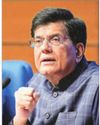The electric vehicle (EV) revolution has been lauded as a game-changer in the fight against climate change, promising to reduce carbon emissions and promote sustainable transportation.
Governments worldwide are investing heavily in this transition through subsidies, policies, and infrastructure development.
While EVs undoubtedly play a role in reducing emissions, the narrative surrounding their unblemished benefits deserves a closer look. An analysis reveals that the EV revolution is not the panacea it is portrayed to be. Resource constraints, environmental implications, and socio-economic challenges raise questions about the long-term sustainability of this shift.
At first glance, EVs seem like an environmental savior, producing zero tailpipe emissions. But this ignores the significant resource demands and environmental costs tied to their production, especially the manufacturing of lithium-ion batteries, their main engine.
Lithium and cobalt, critical components of EV batteries, are extracted at a staggering environmental and social cost.
Around 70% of the world's lithium reserves are concentrated in the "lithium triangle" of Argentina, Chile, and Bolivia, where mining operations are water-intensive, depleting resources in already arid regions.
Cobalt, predominantly sourced from Congo, presents an equally troubling scenario. Reports of hazardous working conditions, child labor, corruption, and geopolitical tensions prevail in the dark underbelly of cobalt mining.
The skyrocketing demand for these minerals risks triggering resource scarcity and "resource wars" as nations vie for economic power driven by fuel—whoever controls the fuel gains power.
Producing an EV is significantly more energy-intensive than manufacturing a traditional internal combustion engine (ICE) vehicle.
This story is from the January 04, 2025 edition of Financial Express Mumbai.
Start your 7-day Magzter GOLD free trial to access thousands of curated premium stories, and 9,000+ magazines and newspapers.
Already a subscriber ? Sign In
This story is from the January 04, 2025 edition of Financial Express Mumbai.
Start your 7-day Magzter GOLD free trial to access thousands of curated premium stories, and 9,000+ magazines and newspapers.
Already a subscriber? Sign In
Father of Saif stabbing accused says he left home without documents
THIRTY-EIGHT HOURS after he allegedly stabbed Saif Ali Khan at the actor's Bandra residence, Mohd Shariful Islam called his father back home in Jhalokathi, Bangladesh.

Israel-Hezbollah Truce Set to Extend Beyond Next Week
The ceasefire agreement that paused the war between Israel and the Hezbollah militia in Lebanon will likely be extended when it expires next week, according to several people familiar with the matter.
IndiGo to operate Jharsuguda to Mumbai daily flights
LOW-COST CARRIER IndiGo on Wednesday announced the launch of new flights between Mumbai and Odisha's Jharsuguda from March 1.
Slow growth in foldable phones demand: Oppo
CHINESE SMARTPHONE MAKER Oppo said the company is not keen on launching foldable phones in India presently as the demand is yet to pick up for the product segment across the industry.
HUL profit up 19.5% on Pureit sale
Dec qtr largely subdued without one-time gain
Taxing for growth
A TAX POLICY FOCUSING ON A BROADER BASE AND SIMPLIFIED, LOWER RATES COULD BOOST ECONOMY

RG Kar: SC defers suo motu hearing
THE SUPREME COURT on Wednesday cited paucity of time and deferred to January 29 the hearing on the suo motu case over the rape and murder of a trainee doctor at state-run RG Kar Medical College and Hospital in Kolkata.
Trump Meme Coins Are a Disaster in Waiting
As a European who doesn't own Bitcoin, I enjoy a bit of schadenfreude when the cryptocurrency industry is really upset about something.

Jute MSP increased by 6% to ₹5,650/quintal
The Cabinet Committee on economic affairs on Wednesday hiked the minimum support price (MSP) of raw jute by 6% to ₹5,650/quintal for the 2025-26 marketing season.
India open to deals as US tariff looms
Trump's trade memorandum leaves room for bilateral deals